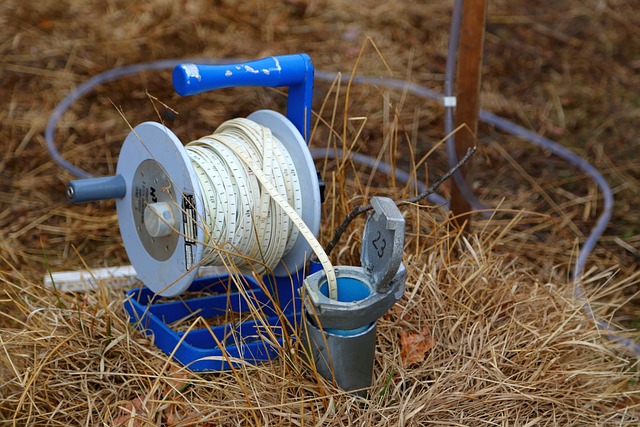India's food security is at risk due to alarming groundwater depletion. A recent study indicates that if current trends persist, groundwater depletion rates in India could triple by 2080. This critical issue is primarily driven by increased groundwater use for irrigation, particularly in response to rising temperatures. With over one-third of India's massive population relying on agriculture, the ramifications of this trend extend beyond national borders, posing a profound threat to both India's food security and global agricultural stability.
For a deeper understanding of the implications and potential solutions, read on.

Alarming Trend in Groundwater Depletion
A recent study has raised significant concerns about the future of groundwater depletion in India. If current trends continue, the rate at which groundwater is being lost could triple by the year 2080. This alarming development is primarily attributed to farmers in India intensifying their groundwater use for irrigation in response to rising temperatures.
The implications of this trend are far-reaching. India, which recently surpassed China as the world's most populous nation, is pivotal in global food production, particularly in staples like rice and wheat. With more than one-third of India's 1.4 billion residents dependent on agriculture for their livelihoods, the threat to food and water security is profound.
The study's lead author, Nishan Bhattarai, who hails from the Department of Geography and Environmental Sustainability at the University of Oklahoma, formerly worked as a postdoctoral researcher in Meha Jain's lab at the University of Michigan. Their research, scheduled for publication in Science Advances on September 1, paints a concerning picture.
Traditionally, studies have examined the individual impacts of climate change and groundwater depletion on crop production in India. However, what sets this study apart is its consideration of farmer decision-making. It acknowledges that crops become more stressed as temperatures rise, leading to increased water demand. In response, farmers opt for greater irrigation, a critical factor for which previous projections did not account.
Far-reaching Implications for Food and Water Security
Senior author Meha Jain, an assistant professor at the University of Michigan's School for Environment and Sustainability, emphasized the significance of this oversight: "We find that farmers are already increasing irrigation use in response to warming temperatures, an adaptation strategy that has not been accounted for in previous projections of groundwater depletion in India. This is of concern, given that India is the world's largest consumer of groundwater and is a critical resource for the regional and global food supply."
The study underscores the urgency of addressing this growing issue, as the consequences of groundwater depletion in India extend beyond its borders, impacting global food security and the livelihoods of millions.
Nishan Bhattarai, a pivotal contributor to this study, highlighted the concerning findings of their model projections. According to their estimates, warming temperatures could lead to a threefold increase in groundwater depletion rates if the current trajectory continues. Moreover, these intensified depletion patterns could encompass previously unaffected regions in south and central India.
The implications of this scenario are significant. Without adequate policies and interventions to conserve groundwater, the researchers anticipate that rising temperatures will exacerbate India's existing groundwater depletion issues. This adds another layer of complexity to India's struggle to maintain food and water security in the context of ongoing climate change.
Earlier research had already indicated that climate change could potentially reduce the yield of staple Indian crops by as much as 20% by mid-century. Concurrently, the rampant depletion of groundwater resources, mainly driven by irrigation demands, presents an alarming challenge.
The research team meticulously compiled a comprehensive dataset to conduct their groundbreaking study. This dataset included information on groundwater depths collected from thousands of wells scattered across India, high-resolution satellite observations that tracked crop water stress, and detailed temperature and precipitation records.
Predictive climate models anticipate a future in India characterized by elevated temperatures, increased monsoon precipitation from June through September, and reduced winter precipitation. However, the research led by the University of Michigan revealed a troubling trend. The combination of warming temperatures and declining winter precipitation outweighed the positive impact of increased monsoon rainfall, leading to accelerated groundwater depletion.
When assessing various climate-change scenarios, their estimates revealed that between 2041 and 2080, groundwater levels could decline at a rate more than three times the current depletion rate, on average.
The study's authors include not only Meha Jain and Nishan Bhattarai but also experts from diverse institutions, such as David Lobell of Stanford University, Balwinder Singh of the International Maize and Wheat Improvement Center in India, Ram Fishman of Tel Aviv University, William Kustas of the U.S. Department of Agriculture, and Yadu Pokhrel of Michigan State University.
This groundbreaking research was made possible through funding from a NASA Land-Cover Land-Use Change Grant and a NASA new investigator program award to Meha Jain, with additional support from the U.S. Department of Agriculture's Agricultural Research Service. These findings underscore the urgency of addressing India's groundwater depletion problem to safeguard its food security and environmental sustainability.


